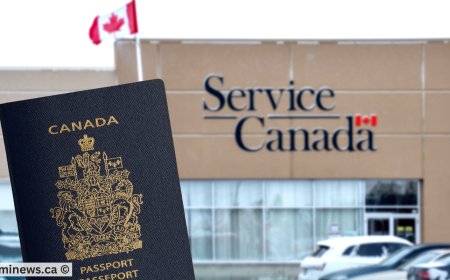Personnel clerks Canada Immigration Pathways: Understanding Salaries, Work Roles, and Best Provinces
Welcome to the pathway to Canada immigration for skilled professionals and trade workers. This guide is specifically tailored for Personnel clerks looking to work and settle in Canada, offering a deep dive into the essential aspects of immigration and employment in this field.
Introduction
In this article, we will be focusing on the career and immigration prospects for Personnel clerks in Canada. Personnel clerks, classified under the National Occupational Classification code (NOC) 1415, play a crucial role in HR departments by assisting with various administrative tasks related to employee recruitment, hiring, and records maintenance. We will explore the main job duties, education and license requirements, skills needed, median salary, and potential retirements for personnel clerks in Canada. Additionally, we will discuss possible visa options for foreign personnel clerks looking to immigrate to Canada for employment opportunities in this field.
What is the Profile Description of a Personnel clerks as per the Canadian National Occupation Classification (NOC) Standards?
Personnel clerks play a vital role in supporting personnel officers and human resources specialists by managing and organizing information related to staffing, recruitment, training, labour relations, performance evaluations, and classifications. They work in personnel departments in various industries, both in the private and public sectors.
What are the Main Job Duties of a Personnel clerks in Canada?
- Process, verify and register documentation related to personnel activities such as staffing, recruitment, training, grievances, performance evaluations, and classifications.
- Maintain and update manual and computerized filing and registration systems, compile reports and documents, and prepare reports on personnel activities.
- Respond to inquiries from staff and the public regarding personnel matters via telephone and written communication.
- Assist with job vacancies by arranging advertising, screening applicants, conducting reference checks, and administering employment tests.
- Coordinate and arrange both in-house and external training activities for employees.
What are the Education, Certifications, and Licensing Requirements to Work as Personnel clerks in Canada?
Education and certification requirements for Personnel Clerks typically include a high school diploma or equivalent. In some cases, completion of college courses or training in personnel administration may also be necessary. Additionally, previous clerical experience is often preferred for this role.
What Essential Skills are Required for Personnel clerks to succeed in Canada?
To be successful in the profession of Personnel clerks, individuals must possess a variety of essential skills. These include the ability to process, classify, and maintain staffing and personnel documents, manage a personnel information database efficiently, prepare staff relations information, disseminate health and safety information, arrange and coordinate in-house and external staff training programs, respond to inquiries regarding personnel matters, arrange for the advertising and posting of job vacancies, screen job applicants effectively, administer and score employment tests, conduct thorough reference checks, and prepare detailed reports. These skills are crucial for maintaining organized and efficient personnel operations within an organization, ensuring that all staffing and employee-related processes run smoothly and effectively.
What is the Median Age and Retirement Age for Personnel clerks in Canada?
The skilled professionals working as Personnel clerks have a median age of 41 years old, indicating that the majority of individuals in this role are in the prime of their careers. With a retirement age of 63 years old, these professionals typically have a long and fulfilling career ahead of them before they transition into retirement. The data suggests that Personnel clerks are experienced and dedicated individuals who are committed to their profession and are likely to continue providing valuable contributions to their organizations for many years to come.
How many job openings exist for Other Personnel clerks in Canada, and what's their provincial distribution?
There are a total of 48 job openings for Personnel Clerks in Canada, with the highest number of job openings in Quebec with 22 positions available. Following Quebec, Ontario has 10 job openings, British Columbia has 7, Saskatchewan has 4, Alberta has 3, Manitoba has 1, and Nova Scotia also has 1 job opening. The maximum number of job openings are in Quebec, while Manitoba and Nova Scotia have the least number of job openings for Personnel Clerks. Based on these numbers, it appears that Quebec is the province with the highest demand for Personnel Clerks, while Manitoba and Nova Scotia have the lowest demand.
What is the hourly wage or salary of Personnel clerks in different Provinces of Canada?
According to the wage analysis for personnel clerks in Canada, there is a significant variation in wages based on the province. Alberta offers the highest wages for personnel clerks, with a high wage of $49.32, a median wage of $27.88, and a low wage of $19.03. Saskatchewan also provides competitive wages, with a high wage of $42.05, a median wage of $24.80, and a low wage of $17.69. On the other hand, Manitoba offers the lowest wages for personnel clerks, with a high wage of $31.25, a median wage of $22.76, and a low wage of $14.00. Overall, personnel clerks in Quebec also receive relatively high wages, with a high wage of $33.67, a median wage of $26.67, and a low wage of $19.89. It is important for personnel clerks to consider these wage differences when exploring job opportunities in different provinces across Canada.
What are the various visa options available for Personnel clerks migrating to Canada?
Personnel clerks looking to migrate to Canada have a variety of visa options available to them. One popular choice is the Express Entry Visa Category, which is a points-based system that evaluates candidates based on factors such as age, education, work experience, and language proficiency. Additionally, Personnel clerks may also be eligible to apply through Provincial Nominee Programs, which allow provinces to nominate individuals who have the skills and experience needed in their local labor market. Employer Sponsored Work Visas are another option, where a Canadian employer can sponsor a Personnel clerk for a work permit. It's important to note that there may be other visa options currently open for this profile. To learn more about these visa categories and discuss your eligibility, book an appointment with our professionals today.
Have Questions or Need Assistance?
If you have any queries or require assistance with your immigration plans, we're here to help. Our experienced immigration consultants are ready to provide personalized guidance tailored to your specific needs.
Don't hesitate to reach out and schedule an appointment today. Whether you're seeking clarification on immigration processes, exploring visa options, or need support with documentation, we're dedicated to assisting you every step of the way.
Book an appointment with our team to discuss your immigration goals and receive expert guidance for your journey to Canada.
What's Your Reaction?
 Like
0
Like
0
 Dislike
0
Dislike
0
 Love
0
Love
0
 Funny
0
Funny
0
 Angry
0
Angry
0
 Sad
0
Sad
0
 Wow
0
Wow
0









































































